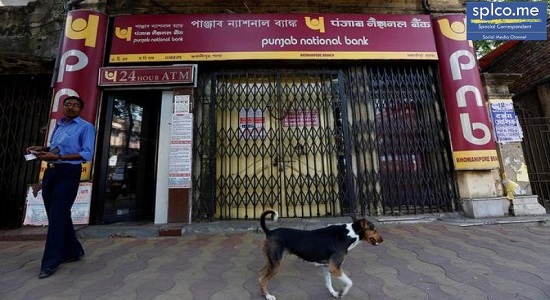Worried with Public response against BJP government, officials finally woke up and asks public sector banks to probe NPAs above Rs 50 crore.

Amid the multi-agency probe into the PNB scam, the state-run bank yesterday said the amount of fraudulent transactions could be Rs 1,300 crore more than the current estimate of about Rs 11,400 crore.
The finance ministry directed state-run banks to examine all bad loan accounts exceeding Rs 50 crore for possible fraud, a fallout of the multi-billion dollar scam at Punjab National Bank (PNB).
It also gave a 15-day deadline to state-run banks to take pre-emptive action, identify and address operational and technological risks, and adopt best practices to tighten their systems.
The government also stressed the need for accountability of the top management of banks and directed them to detect frauds and wilful defaults as per the Reserve Bank of India (RBI) guidelines, and to refer the cases to the Central Bureau of Investigation (CBI).
While this could pose an operational challenge to state-owned banks, in the process the Union government has signalled a toughening of stance and a sense of urgency in containing any fallout from the Rs 12,636 crore scam allegedly perpetrated by jeweller Nirav Modi on PNB.
These banks will be required to scrutinise a large number of accounts—no estimate was immediately available.
The gross non-performing assets (NPAs) of state run banks increased rapidly due to fallen economy under BJP rule is estimated at nearly ₹8 trillion.
Chief vigilance officers of banks have been asked to work with CBI for complaints on frauds exceeding Rs 50 crore. Banks have also been asked to seek a borrower status report from the Central Economic Intelligence Bureau once an account is declared an NPA.
Rajiv Kumar, secretary, department of financial services, explained the framework for timely detection, reporting and investigation of high-value bank frauds as well as the time frame for banks to strengthen their systems on Twitter.
A group of executive officers and chief technology officers have been tasked to prepare a blueprint to ensure the banking system’s preparedness for the operational and technological challenges.
Bank boards will have to assign clear accountability to senior functionaries for implementation and compliance.
All this had its effect of Shares of the PNB that opened weak at Rs 107.80, then cracked 8.75 per cent to a 52-week low of Rs 102.10 on the BSE.
Similar movement was seen on the NSE too, where the stock opened at Rs 106.80, then fell to its 52-week low of Rs 102, down 8.92 per cent over its previous close.














